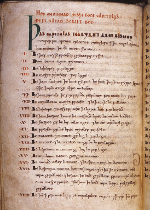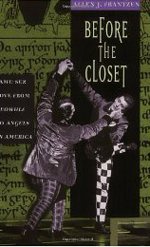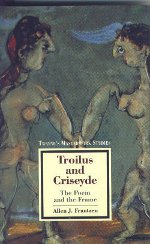Co-editor, with Howell Chickering and R. F. Yeager, Teaching Beowulf in the 21st Century. Arizona State University Press, 2014.
Co-editor, with John Hines, Cædmon's Hymn and Material Culture in the World of Bede. Medieval European Studies, West Virginia University Press, 2007.
Co-editor, with C. Stephen Jaeger. The Politics and Aesthetics of Gender in the Middle Ages. Essays in Medieval Studies, vol. 19. Proceedings of the Illinois Medieval Association, 2002. Morgantown: West Virginia University Press, 2003
Editor, Gestures, Behaviors, and Emotions in the Middle Ages. Essays in Medieval Studies, vol. 18. Proceedings of the Illinois Medieval Association, 2001. Morgantown: West Virginia University Press, 2002.
Editor, Uses of the Past. Essays in Medieval Studies, vol. 17. Proceedings of the Illinois Medieval Association, 2000. Chicago: IMA, 2001.
Co-editor, with Thomas N. Hall. Prayer, Devotion, and Cult. Essays in Medieval Studies, Proceedings of the Illinois Medieval Association, vol. 14. Chicago: IMA, 1998.
Co-editor, with John D. Niles. Anglo-Saxonism and the Construction of Social Identity. Gainesville: University Press of Florida, 1997.
Co-editor, with David Robertson. Figures of Speech: The Body in Medieval Art, History, and Literature. Essays in Medieval Studies, Proceedings of the Illinois Medieval Association, vol. 11. Chicago: IMA, 1995.
Co-editor, with Douglas Moffat. The Work of Work: Labor, Slavery, and Servitude in Medieval England. Glasgow: Cruithne Press, 1994.
Editor, Four Last Things: Death, Judgment, Heaven, and Hell in the Middle Ages. Essays in Medieval Studies, Proceedings of the Illinois Medieval Association, vol. 10. Chicago: IMA, 1994.
Editor, Speaking Two Languages: Traditional Disciplines and Contemporary Theory in Medieval Studies. Albany: State University of New York Press, 1991.
From the Introduction:
to BOXING AND MASCULINITY
forthcoming Summer 2022
Boxing as tradition, rebellion, combat, and competition
Boxing and Masculinity supports tradition and rebellion, two chambers of the beating heart of boxing. For much of its long history, boxing has been seen as resistant to authority and social norms. It has been regarded as lawless and barbaric. Boxing is a martial art, a discipline that celebrates combat and competition. Essential to warrior culture, combat and competition form the other chambers of the heart that powers this great sport.
Boxing was never genteel, even as a sport for aristocrats in the eighteenth century. Boxing seems especially out of synch with the kinder, gentler world taking shape for men today. With his boxing brothers, the fighting man pushes back against the conformity demanded by big tech and by the government, seen in its handling of the COVID-19 pandemic. Now that political mandates and media censorship have diminished individual freedom, boxing seems more rebellious and anti-social than ever.
Numerous studies have established the harm caused by the government-ordered shutdowns of 2020. Yet progressives continue to defend these measures, which were often no more than well-intentioned failures. We know that those states with the toughest restrictions incurred the worst damage (in Works Cited, see Kerpen, Moore, and Mulligan). Yet we are not permitted to ask about the origins of the pandemic or about the long-term consequences of pandemic-related policies. Big tech justifies the government’s demands, silences critics, and censors discussion. Ours is not to question why. Instead, we are supposed to put up and shut up.
Boxers are independent men, and independent men know that the chief benefit of strength is deterrence, especially deterrence of coercion. Independent men don’t live in fear. We aren’t afraid to be challenged and don’t need to hide out. We know that strength earns respect.
Squaring off in the ring is a constructive and creative way to express yourself as a man, and that should always be the goal. Squaring off in the ring is also an effective way to resist conformity and social control, another worthy aim. If you want to fight for yourself in a world that wants to keep you in your place—that is, if you want to deter those who want to manipulate you—then you should take up boxing. Boxing can’t do much to change the world, but it can do a lot to build strength and independence, one man at a time. That can only make the world better and safer.
Boxing is traditional, and so are calls for rebellion. For a pragmatic view of conflict we have no greater authority than Thomas Jefferson. Writing to James Madison in 1787, Jefferson weighed democracy against monarchy. He defined democracy as a form of government in which “the will of every one has a just influence.” He allowed that it could be turbulent, but he accepted a little turbulence as the price of liberty and happiness. Turbulence “is productive of good,” he wrote. “It prevents the degeneracy of government, and nourishes a general attention to the public affairs. I hold it that a little rebellion now and then is a good thing, and as necessary in the political world as storms in the physical.” His view has been traced to the Roman historian Sallust, who linked freedom to danger and associated peace with slavery (Sallust died about 35 BC). Like Jefferson, Sallust preferred the risks of freedom. I agree. It’s time for a little rebellion.





 >
> >
> >
> >
> >
> >
> >
>